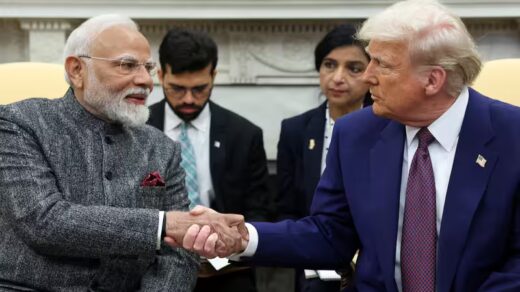
The Palestinian militant group, Hamas, launched an attack resulting in over a thousand casualties in both Israel and Palestine, as discussed in a previous article. Hamas claimed the attack was in retaliation for attacks on Palestinian women, the desecration of the Al-Aqsa Mosque, and other attacks in Gaza. Israeli Prime Minister Netanyahu responded to the attack by asking Israelis to prepare for a prolonged and challenging conflict. This claim was further supported by Israeli defense minister, Yoav Gallant, as he ordered a ‘complete siege’ on Gaza. Supply of food, electricity, as well as fuel will also be halted with the minister claiming, “we are fighting barbarians and will respond accordingly.”
The reignited conflict comes amid peace talks between Israel and Saudi Arabia, which aims to hopefully establish diplomacy in the Middle East, and ultimately peace. However, the Crown Prince of Saudi Arabia’s comments on the conflict demonstrated his alleged support for the Palestinians, claiming he stands “by the Palestinian people to achieve their legitimate rights to a decent life, achieve their hopes and aspirations, and achieve just and lasting peace”. This may harm the brokered peace talks between both nations and destroy any progress of potential peace in the region.
The Biden administration’s goal is to establish diplomacy between Israel and Palestine, which is a departure from previous administrations. They believe that brokering peace talks between the two nations is the best path to improve the livelihoods of those in the region, rather than focusing on the long-standing feud between them since Israel’s sovereignty in 1948.
Prior to the shocking attack by Hamas, US officials were making progress between both nations, desiring to establish demands from the Palestinians and what Israel was willing to offer as concessions. The United States’ failure to involve Hamas in peace talks could demonstrate a lack of awareness of the group’s power and influence in the region, particularly during times of conflict with Israel. However, the US’s efforts to deter Hezbollah, another militant group located in Lebanon, could indicate a more informed approach to dealing with militant groups in the region and their role as significant actors. Although Saudi Arabia has not condoned Hamas’ actions and has made clear that it believes the attacks occurred due to the “deprivation of the Palestinian people of their legitimate rights, and the repetition of systematic provocations”, it has demonstrated to be entirely focused on the rights and demands of the Palestinian civilians rather than the militant group, claimed as a terrorist group by many nations in the west. This was clear as Saudi Arabia made it clear that the ‘Palestinian issue is very important’ and its goal was to ‘ease the life of the Palestinians’.
Furthermore, despite the state denying these rumors, rumors of Hamas being backed and funded by Iran may also deter any support from Saudi Arabia for the militant group. Tensions between Saudi Arabia and Iran have been high in the past two decades, notably by the ongoing proxy war in Yemen. Saudi Arabia has displayed its resistance to supporting the militant group, which may exhibit that peace talks may not be deterred between the two nations because of the attack.
Written by Arash Moaref


